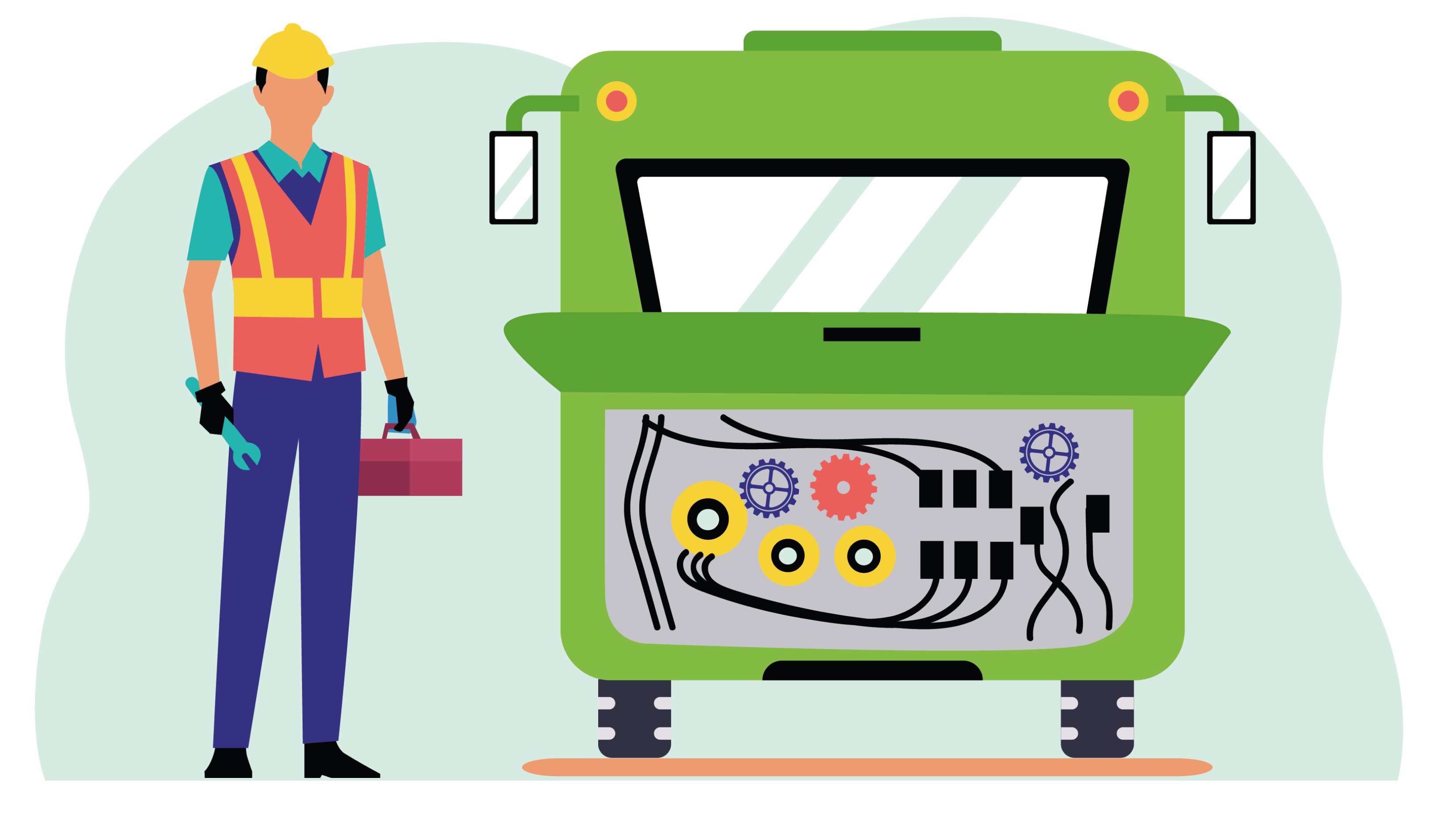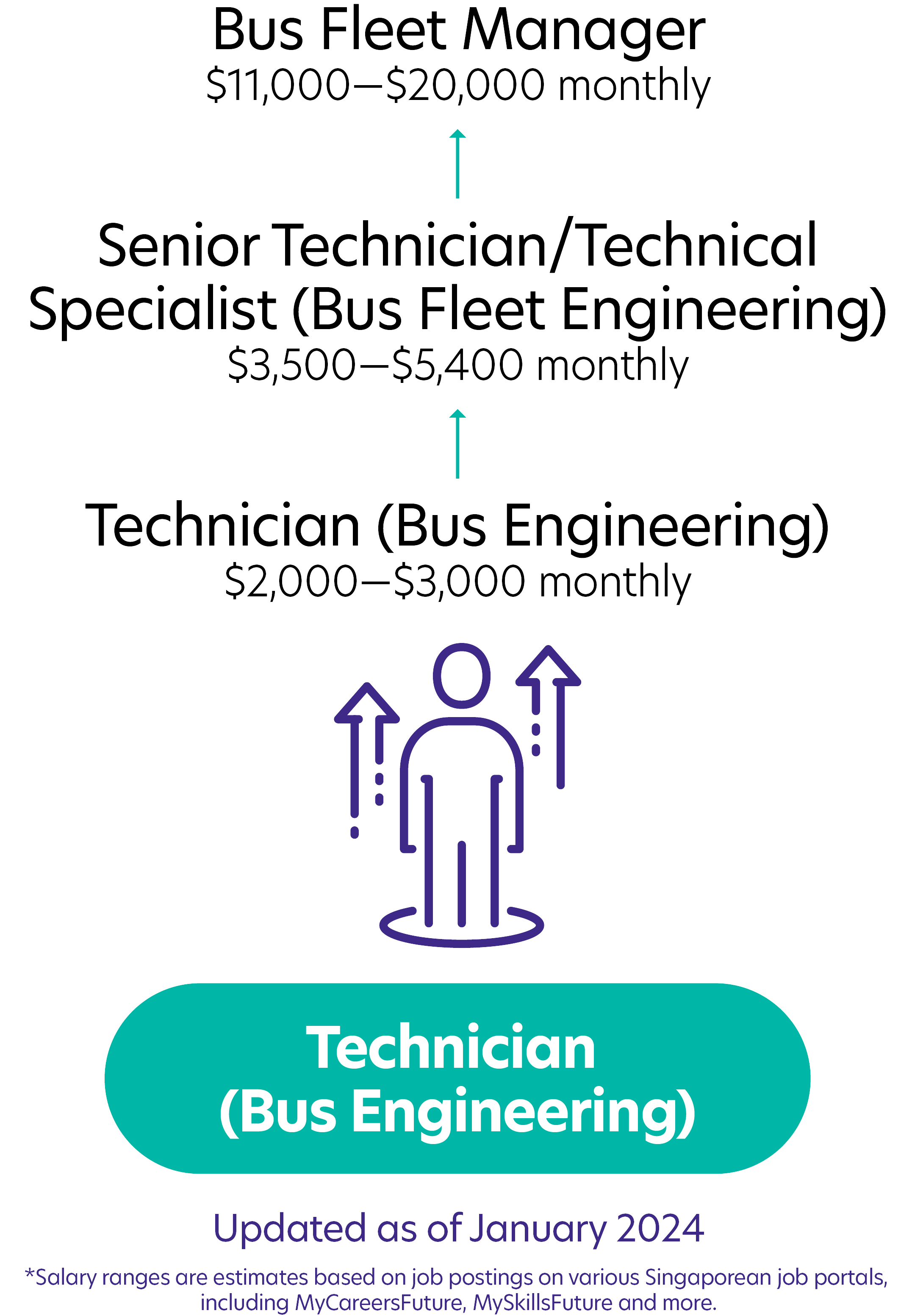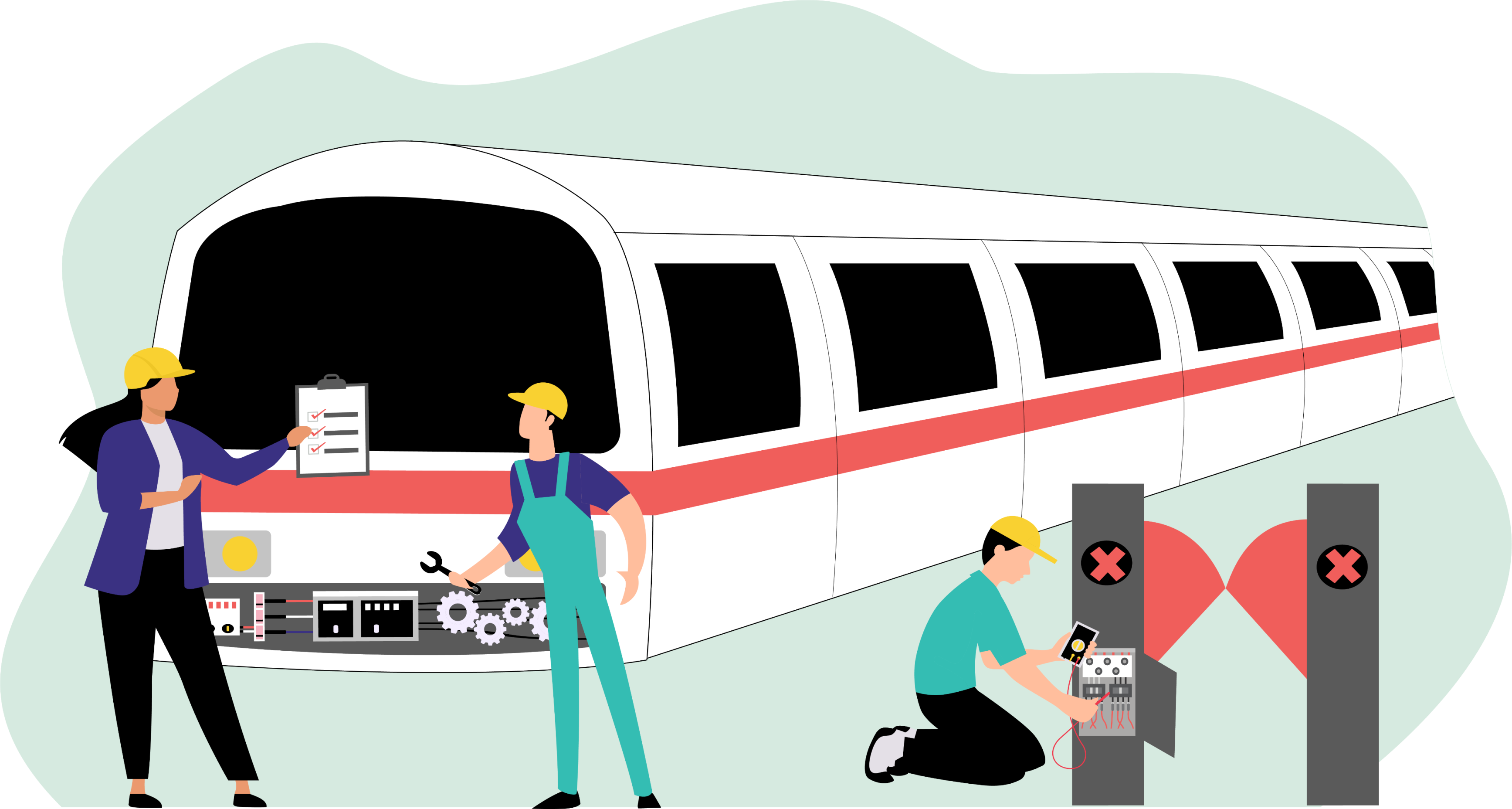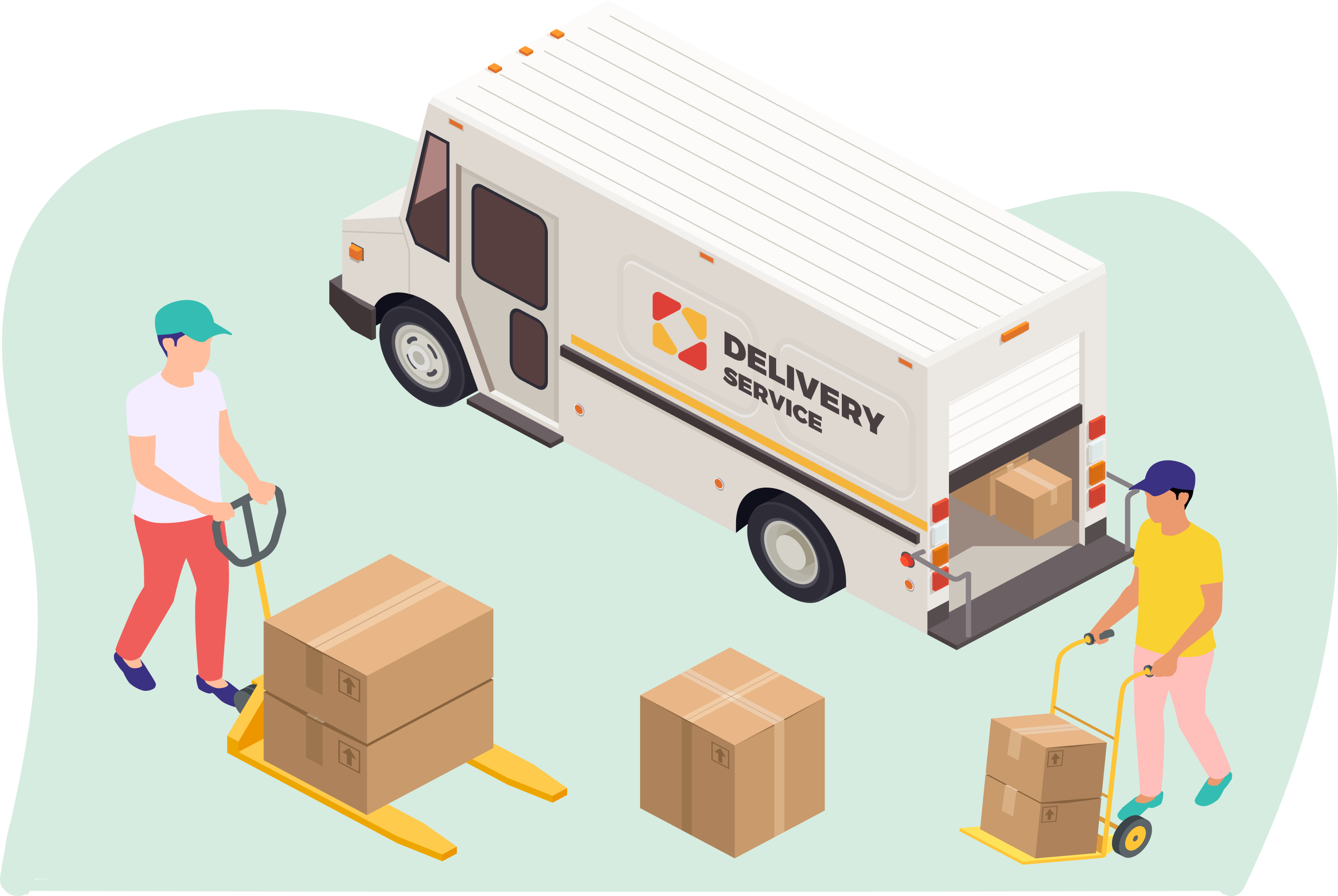
Technicians (Bus Engineering) do routine maintenance checks on buses and repair faults in different bus subsystems. They also maintain workshop tools and may be dispatched to roads to repair broken buses.
Technician (Bus Engineering) Job Description
- Conduct corrective and preventive bus repairs and servicing.
- Document routine maintenance activities.
- Provide assistance and repair buses on roads in the event of a breakdown.
- Operate towing vehicles and onboard equipment.
- Maintain and conduct regular housekeeping of workshop tools and equipment.
- Comply with Workplace Safety and Health (WSH) regulations.
Note
To meet the needs of a growing Public Bus Sector, more than 1,100 Bus Technicians and Engineers will be required in Singapore by 2030.
What you should know about Technician (Bus Engineering) jobs in Singapore
Nature of Work
As Technicians (Bus Engineering), you will perform routine maintenance, diagnostics, and bus repairs to ensure safety, reliability, and efficiency.Key Advice
Your work environment might be different, depending on your work shift. You can anticipate working at either bus workshops or depots.-
Entry RequirementsEntry Requirements
- A higher Nitec or Nitec in Automotive Technology, Mechanical, Electrical, or Electronics is required.
- 1-2 years of work experience in a similar industry or related field is highly advantageous.
- Knowledge of bus and car parts and components as well as automation is necessary.
-
Possible PathwayPossible Pathway

Skills you need to pursue a Technician (Bus Engineering) career in Singapore
Bus Maintenance Skills
Able to conduct routine and complex maintenance tasks, repairs, and adjustments on buses.Knowledge of Bus Sub-Systems
Have an in-depth understanding of Electrical, Mechanical, Pneumatic, and Hydraulic systems.Preventive Maintenance Knowledge
Reduce the likelihood of bus breakdowns and extend the lifespan of bus components.Communication Skills
Able to clearly and effectively communicate with team members, supervisors, and other departments.Interpersonal Skills
Build positive relationships with colleagues and work effectively in a team.Collaboration
Work cooperatively with others, share knowledge, and contribute to team efforts.Related Job Roles
Explore Other Programmes
Browse AllYou have bookmarked your first item!
Find it in My Discoveries with insights on your interests!









